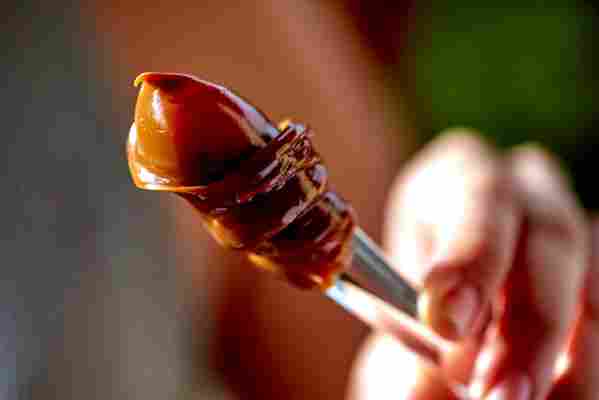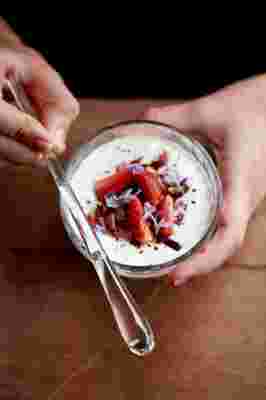How the Design of Your Spoon Can Enhance the Taste of Food
“Cutlery is boring,” says designer Daniel Ospina. “When was the last time you discussed forks or spoons?” Ospina, who designs for Michel / Fabian, is part of a three-person team committed to rethinking the way we experience utensils. The team’s namesake partners are former Michelin-star chef Charles Michel and Bucks New University professor Andreas Fabian, who (literally) wrote the book on spoons in a 2011 doctoral thesis .
Their wide-ranging prototypes include utensils such as a “Spoon Plate,” which, according to Ospina, “invites the diner to lick the food off the plate in an elegant and discreet way.” The team's first prototype to go into production, however, was a device called Goûte , a glass wand modeled on a finger. The Goûte does not hold food like a spoon or a fork, so it works only with dense, creamy dips and spreads (think Nutella or hummus). Using Goûte is a sensual, tactile experience—akin, the team argues, to licking dip off your finger.

The Goûte is a glass utensil modeled on a finger.
Oxford University researchers Vanessa Harrar and Charles Spence published results from a 2013 study in which they varied the weight, size, shape, and color of cutlery to observe changes in the perception of food. What they found is that a study participant, or diner, could be cued by their cutlery. For example, yogurt eaten off a black spoon was perceived as saltier than yogurt eaten off a white spoon. Michel / Fabian then asked Charles Spence to test the Goûte. Participants ate yogurt off a plastic spoon but found the same yogurt eaten from the Goûte to be higher-quality and creamier.

Study participants who ate yogurt from the Goûte perceived it to be creamier and higher-quality than the same yogurt eaten from a plastic spoon.
Fabian hopes not to perfect cutlery design but to reimagine it entirely. “If you think ‘spoons,’ then you probably design spoons,” he says. “If you think ‘spoon-ness,’ then you think about properties and qualities and might produce new objects.” So, for now, don’t think “spoon” at all. Think “Goûte.”